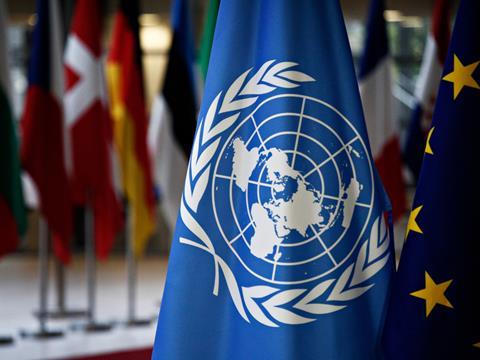
The Ellen MacArthur Foundation has published a white paper outlining its views on a UN treaty that would set out global goals and legally binding targets to strengthen current efforts to tackle plastic pollution and support the transition to a circular economy for plastics.
The report argues that voluntary action by governments, industry, and civil society, however significant, is simply not enough on its own to create the right conditions and bring about the necessary changes. A global treaty would, it says, support and harmonise current efforts, facilitating international cooperation on this critical issue.
“A UN treaty on plastic pollution is crucial to the creation of a circular economy for plastic, and now financial institutions too are urging governments to establish an international agreement,’ said Andrew Morlet, CEO of the Ellen MacArthur Foundation. “Setting a coherent international policy direction will support the delivery of commitments being made by leading global companies, and level the playing field for the entire industry so that all actors can play their part.”
According to the report, a comprehensive policy framework could enable the emergence of circular design solutions in sectors such as food and beverage packing. It would also reportedly promote improved resource management capabilities, determine the economic conditions for a circular economy and facilitate investments, as well as furthering collaboration across value chains and government structures.
Focusing only on improving waste management or banning single-use plastics is not sufficient for tackling plastic pollution, the report says. It is the view of the Foundation that a circular economy addressing the entire lifecycle of plastic is required to solve the issue of waste and pollution and its effects on biodiversity loss and climate change.
Dealing with plastic waste starts with eliminating plastics that we do not need to begin with, according to the Foundation, and using innovation to ensure that the plastics we use are able to be reused, recycled, or composted. It argues that these plastics must then be circulated and kept in the economy so that they do not enter and harm the environment.
In the report, the Foundation calls on all governments, industry, and civil society to work towards developing a framework for the treaty and to decide on forming an international negotiating committee at UNEA 5.2 in February 2022, which over 100 national governments have already agreed to support as of August 2021.













